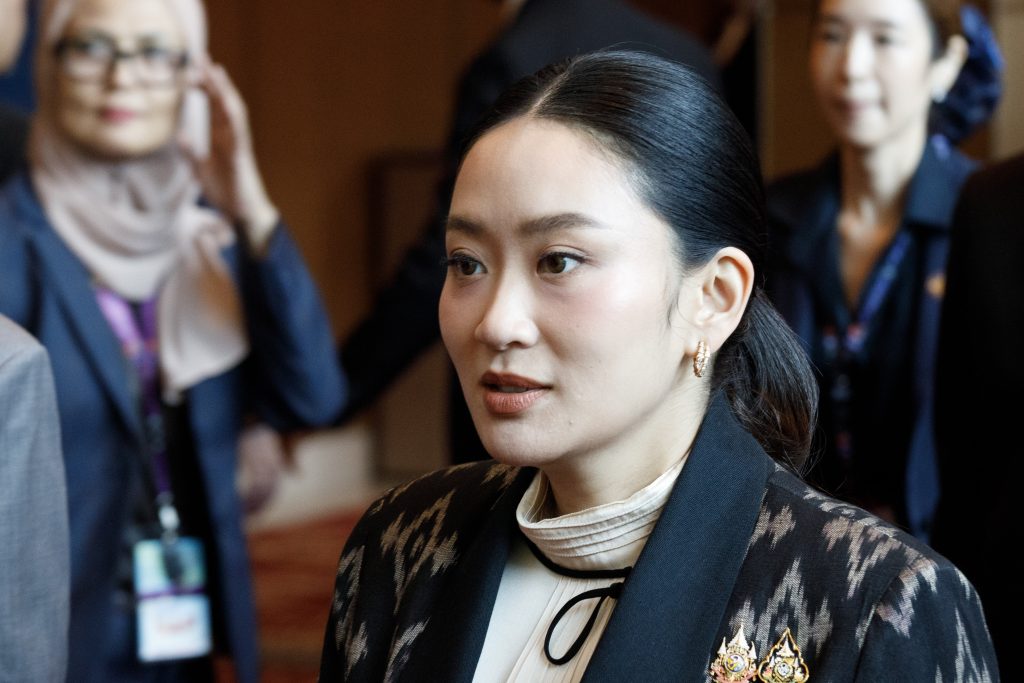
THAI Prime Minister Paetongtarn Shinawatra’s less than one-year-old government faces its biggest test yet, with feuding between the two biggest coalition parties threatening the national budget.
The fate of the $113 billion spending plan lies in the hands of the conservative Bhumjaithai party, the second-largest group in an alliance that commands a nearly two-thirds majority in the legislature. Bhumjaithai has been quarreling with the biggest coalition party Pheu Thai of Paetongtarn and her father, former Prime Minister Thaksin Shinawatra.
The two groups have clashed over issues including changes to the military-drafted constitution, the legal status of cannabis and a plan to open casinos. Both parties are jostling for influence and the spoils of power, though the budget debate is unlikely to bring down the government, according to Napon Jatusripitak, acting coordinator of the Thailand Studies Program at ISEAS-Yusof Ishak Institute.
“It’s essentially a game of chicken,” Napon said. “But the real cost of all this falls on the Thai public, who are made to bear the consequences of this power struggle through policy paralysis, stalled reforms, and the systematic weaponization of state institutions as instruments of partisan warfare that leaves a dangerous precedent.”
Paetongtarn and Deputy Prime Minister Anutin Charnvirakul, who heads Bhumjaithai, have both publicly denied any irreconcilable differences. And Bhumjaithai this week said it would support the budget.
But close aides to both leaders have been trading barbs. A budget defeat wouldn’t necessarily force the premier to quit, but it would signal she had lost the confidence of parliament and spook investors in a country with a history of truncated administrations.
There will be “dire political consequences if Bhumjaithai did not support the government’s spending plans,” according to Tim Leelahaphan, an economist at Standard Chartered Bank Thai Pcl.
The threat of a 36% tariff on exports to the US has already triggered deep cuts to the nation’s growth outlook. An exodus of foreign investors from Thai stocks has led to a net outflow of about $4 billion in the past year.
Investors see the budget as key, especially with the central bank signaling limited room for rate cuts. Tourism growth is moderating and exports are forecast to grow just 1.8%.
The parties are not fighting, said Chanin Rungtanakiat, a deputy Pheu Thai spokesman, noting that differences are normal for a multi-party coalition with varying agendas and support bases.
Bhumjaithai will not deliberately derail the bill in the first reading, said party spokeswoman Nan Boontida Somchai. “Rumors of our conflicts are not true,” she said.
The genesis of the bickering lies in the formation of the current alliance, which denied power to the winner of the 2023 election — the reformist People’s Party. The coalition came about through a deal between pro-royalist and conservative groups with Thaksin. That let the former leader to return from a 15-year exile, with his family-controlled Pheu Thai party forming a government with a clutch of pro-military and conservative parties.
The first leader of the uneasy alliance was ousted for an ethical breach, after which Thaksin’s daughter Paetongtarn took over. While Pheu Thai and Bhumjaithai have moved beyond their wrangling over cannabis and the constitution, disputes over plans for casinos and a widening probe into the alleged rigging of last year’s Senate election has seen them resort to proxy legal challenges.
Clash of Ambitions
And Thaksin’s not-so-subtle role in shaping government policies and his bid to position Pheu Thai as the dominant party are clashing with Anutin’s own ambitions of one day becoming prime minister. Anutin, whose family controlled a major developer, enjoys the backing of the pro-royalist, conservative establishment who have wielded clout since Thailand ceased to be an absolute monarchy in 1932.
The Shinawatra family needs Anutin and his party at the moment, with both Paetongtarn and Thaksin facing several legal cases.
“Anutin may hope that Paetongtarn is ousted by one of the many legal challenges launched against her by other conservative opponents and he can then secure the top job himself,” said Peter Mumford, Southeast Asia Practice Head at Eurasia Group. “But if she is taken down, Thaksin may withdraw Pheu Thai from the coalition rather than support Anutin as prime minister, precipitating a political crisis.”
For now, the two parties are stuck with each other in a “frenemies” dynamic, Mumford said.
The immediate need in the budget debate is to avoid policy paralysis, said ISEAS-Yusof Ishak’s Napon.
“With the country stuck in political limbo and lacking a coherent economic response, it will miss a critical window to steady the ship to weather the storm,” Napon said. –BLOOMBERG
The post Thaksin-backed coalition risks fracturing in Thai budget vote appeared first on The Malaysian Reserve.
